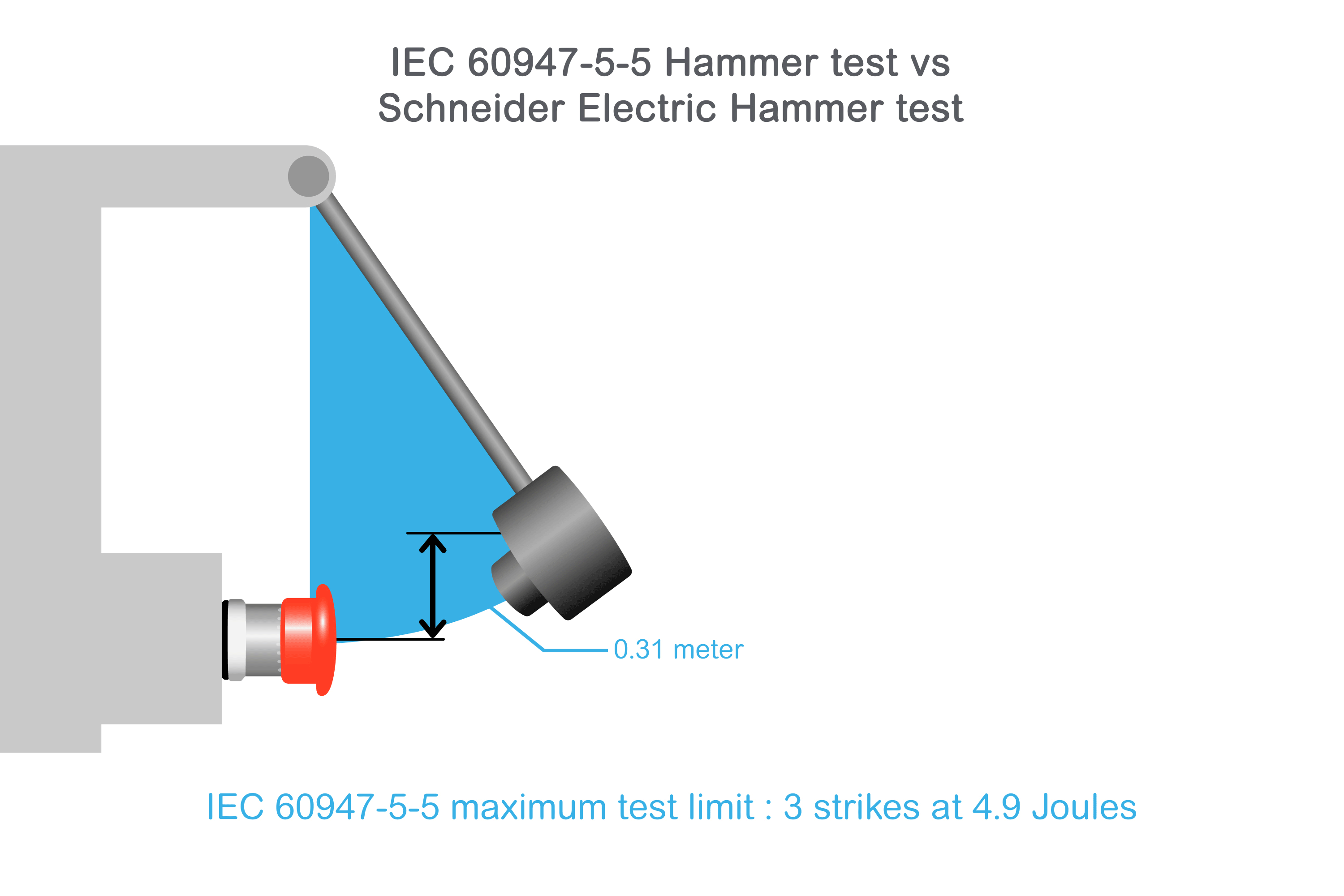Improving Emergency Stop Button Reliability, Visibility, and Efficiency
Written By: Schneider Electric Team

If you work in a manufacturing plant or on its equipment, you are well aware of the critical role of the emergency stop (E-Stop) push-button. However, the E-Stop push-button is often overlooked for its functionality and reliability on plant floor equipment. While operators hope they will never need to use it, the E-Stop must be 100% operational if required.
Working together with manufacturers, Schneider Electric has a proven history of delivering E-Stop functionality to improve reliability, visibility, and efficiency.
The E-Stop is synonymous with operator plant floor safety, and its function has not changed since the technology first began to be used. If a control panel has only one button, it will likely be the E-Stop, and operators are well-versed in using it without additional training.
Proven Reliability and Durability
Schneider Electric continues to innovate in operator and machine safety improvement. They designed and built their new E-Stop button to exceed today’s industry standards, so plant-floor operators can be confident the E-Stop will function correctly as intended.
It is important to note that IEC 60947-5-5 requires control circuit devices and switching elements (e.g., electrical emergency stop devices with a mechanical latching function) to remain intact and functional after being struck with the energy of 4.9 Joules (equivalent to a 1.6kg hammer strike from a height of 310mm).

To ensure reliability, Schneider Electric’s Harmony E-Stop push-button can withstand three times above the standard, or equivalent to a 1.6kg hammer strike from a height of 1100mm.[1]
Ensure Operation
Employees can put their minds at ease knowing that Schneider Electric tests Harmony E-Stop extensively to confirm that correctly installed contact does not eject from its position during extreme vibration and shock.
People pose the most significant risk to E-Stop functionality. Here is why: typically, when emergency stop functionality fails to function, it is due to improper installation.
Fortunately, Schneider Electric’s E-Stop button design aids in proper installation. The Harmony E-Stop’s monitoring contact stops machine operation immediately due to improper installation.
Another key safety feature of Schneider Electric’s E-Stop button is its smooth body, which reduces the risk of accidentally blocking activation. Additional illumination provides visual feedback so operators can immediately identify its status.
Finally, an emergency stop can’t work unless the operator can easily find it. The illuminated legend ring on the Harmony E-Stop button comes with either a white or red LED for quick visual identification. While the standard legend ring is in English, it is also available in French and Spanish to ensure machine operators can read the legend efficiently and correctly.
Final Thoughts
Manufacturers want to provide the safest possible environment for their operators, which increases their confidence to focus on their job without worrying about the E-Stop. Schneider Electric’s innovative Harmony E-Stop makes it easy for production workers to know E-Stop functionality is in place and will function as per design.
[1] Hammer test according to IEC60947-5-5 is 4.9 Joules. Schneider Electric’s hammer test is 17.6 Joules for metal push-button and 14.4 Joules for plastic push-button.





